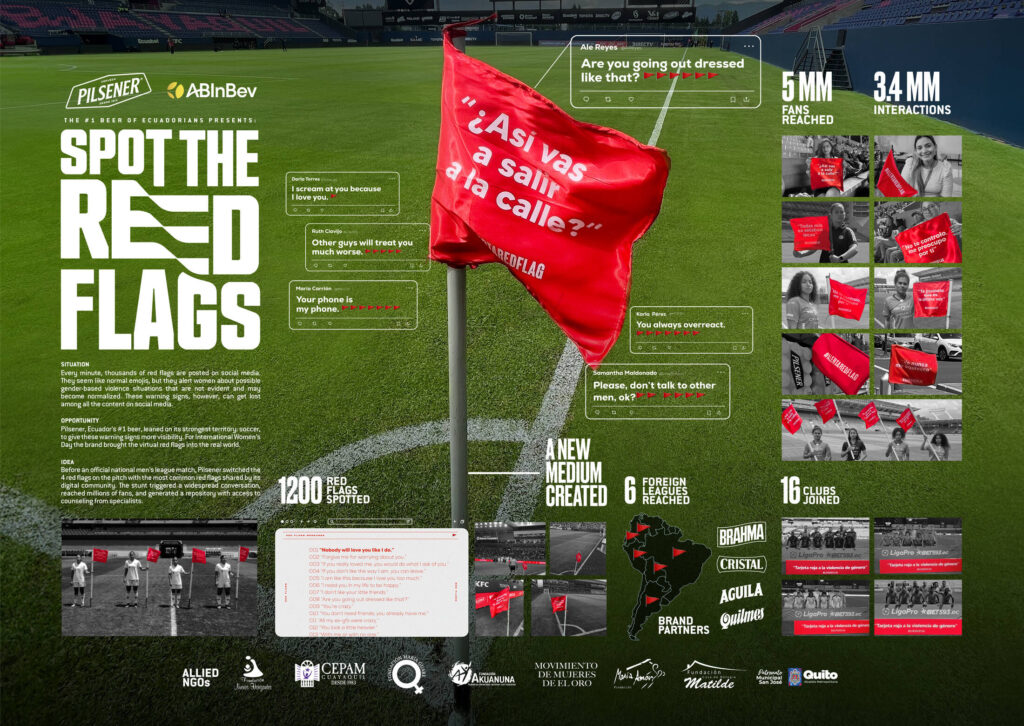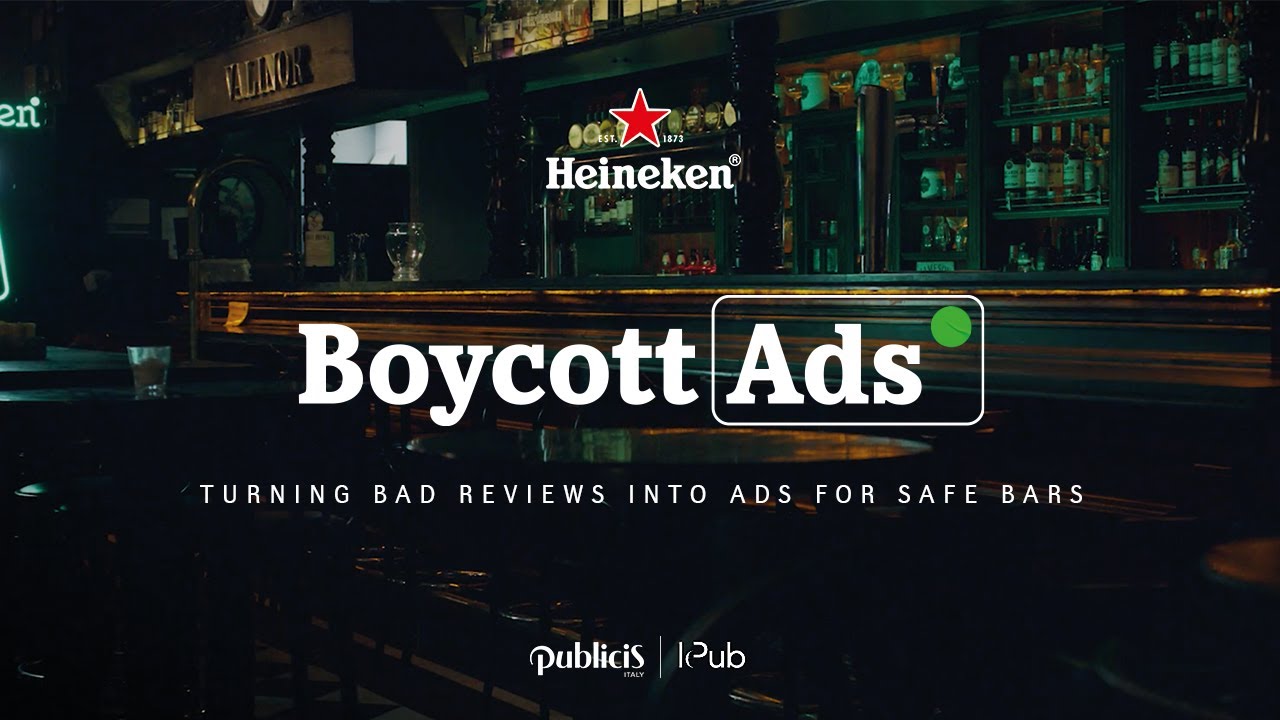
Pilsener, Ecuador’s leading beer brand under AB InBev, launched the “Spot the Red Flags” campaign with a bold and socially conscious mission: to raise awareness about emotional abuse and gender-based violence in relationships. Timed with International Women’s Day, the campaign aimed to transform the digital symbol of 🚩—commonly used on social media to signal toxic behavior—into a real-world intervention that would spark national dialogue and position the brand as a socially responsible ally.
Campaign Overview
In today’s digital culture, the red flag emoji has become shorthand for identifying problematic behaviors in relationships—phrases like “I yell at you because I love you” or “All my exes were crazy” are often dismissed or normalized. Pilsener recognized that while these warnings circulate online, they rarely translate into meaningful action offline. So, the brand took a powerful step: it replaced the traditional corner flags on football fields with literal red flags printed with the most-shared toxic phrases submitted by users. This symbolic gesture was unveiled during a high-profile men’s league match between Liga de Quito and Aucas, instantly turning a familiar sports setting into a platform for social awareness.
Problem
Despite growing conversations around emotional abuse, many harmful behaviors remain culturally accepted or overlooked—especially in male-dominated spaces like football. Digital warnings are easy to scroll past, and alcohol brands are often criticized for ignoring their role in shaping societal norms. Pilsener faced the challenge of addressing a sensitive issue without seeming opportunistic, and of engaging a broad audience in a conversation that’s typically confined to niche advocacy groups.
Execution
The campaign unfolded in three strategic layers.
Stadium activation: corner flags were replaced with red flags printed with emotionally abusive phrases, unveiled by female players from Liga de Quito before kickoff. This visual disruption forced fans, players, and media to confront the reality of emotional abuse in a space not typically associated with such messaging.
Digital extension: Pilsener created a platform where users could submit their own red flag phrases, building a community-driven repository of warnings. The brand partnered with eight NGOs to offer counseling and support, ensuring the campaign had tangible impact beyond awareness.
Media and PR push: the campaign was amplified through national press, influencer engagement, and social media storytelling, timed perfectly with International Women’s Day to maximize relevance and reach.
Brand Impact
“Spot the Red Flags” elevated Pilsener’s brand identity from a traditional beer company to a socially conscious voice in Ecuadorian culture. By embedding the campaign within football—a sport deeply woven into national identity—the brand achieved cultural relevance and emotional resonance. It demonstrated that even consumer brands can credibly speak on serious issues when they approach them with empathy, authenticity, and community involvement. The campaign also helped Pilsener differentiate itself in a crowded market, aligning its values with a younger, socially aware demographic.




Results
The Spot the Red Flags Campaign delivered impressive results, with 1,200 red flags spotted and engagement spanning 6 foreign leagues. A total of 16 clubs joined the initiative, helping it reach 5 million fans and generate 3.4 million interactions, making it a powerful awareness-driven campaign.
Lessons Learned
“Spot the Red Flags” offers several key takeaways for marketers and brand strategists.
Symbolic gestures—when executed thoughtfully—can drive real change. Turning a digital emoji into a physical intervention made the issue impossible to ignore.
Meeting audiences where they are matters: football stadiums and social media proved to be powerful platforms for engagement.Community-led content wins; by allowing users to submit their own red flags, Pilsener created authenticity and emotional depth.
Brands can—and should—use their influence to address societal issues, provided they do so with empathy, transparency, and a commitment to follow-through.









